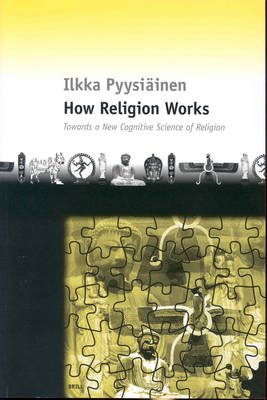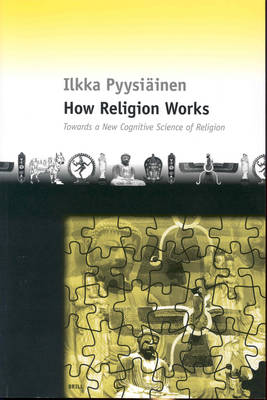
- Afhalen na 1 uur in een winkel met voorraad
- Gratis thuislevering in België vanaf € 30
- Ruim aanbod met 7 miljoen producten
- Afhalen na 1 uur in een winkel met voorraad
- Gratis thuislevering in België vanaf € 30
- Ruim aanbod met 7 miljoen producten
Zoeken
€ 90,45
+ 180 punten
Uitvoering
Omschrijving
Recent findings in cognitive science and evolutionary psychology provide important insights to the processes which make religious beliefs and behaviors such efficient attractors in and across various cultural settings. The specific salience of religious ideas is based on the fact that they are 'counter-intuitive': they contradict our intuitive expectations of how entities normally behave.
Counter-intuitive ideas are only produced by a mind capable of crossing the boundaries that separate such ontological domains as persons, living things, and solid objects. The evolution of such a mind has only taken place in the human species.
How certain kinds of counter-intuitive ideas are selected for a religious use is discussed from varying angles. Cognitive considerations are thus related to the traditions of comparative religion.
This publication has also been published in hardback, please click here for details.
Counter-intuitive ideas are only produced by a mind capable of crossing the boundaries that separate such ontological domains as persons, living things, and solid objects. The evolution of such a mind has only taken place in the human species.
How certain kinds of counter-intuitive ideas are selected for a religious use is discussed from varying angles. Cognitive considerations are thus related to the traditions of comparative religion.
This publication has also been published in hardback, please click here for details.
Specificaties
Betrokkenen
- Auteur(s):
- Uitgeverij:
Inhoud
- Aantal bladzijden:
- 276
- Taal:
- Engels
Eigenschappen
- Productcode (EAN):
- 9789004132733
- Verschijningsdatum:
- 28/07/2003
- Uitvoering:
- Paperback
- Formaat:
- Trade paperback (VS)
- Afmetingen:
- 167 mm x 242 mm
- Gewicht:
- 476 g

Alleen bij Standaard Boekhandel
+ 180 punten op je klantenkaart van Standaard Boekhandel
Beoordelingen
We publiceren alleen reviews die voldoen aan de voorwaarden voor reviews. Bekijk onze voorwaarden voor reviews.








